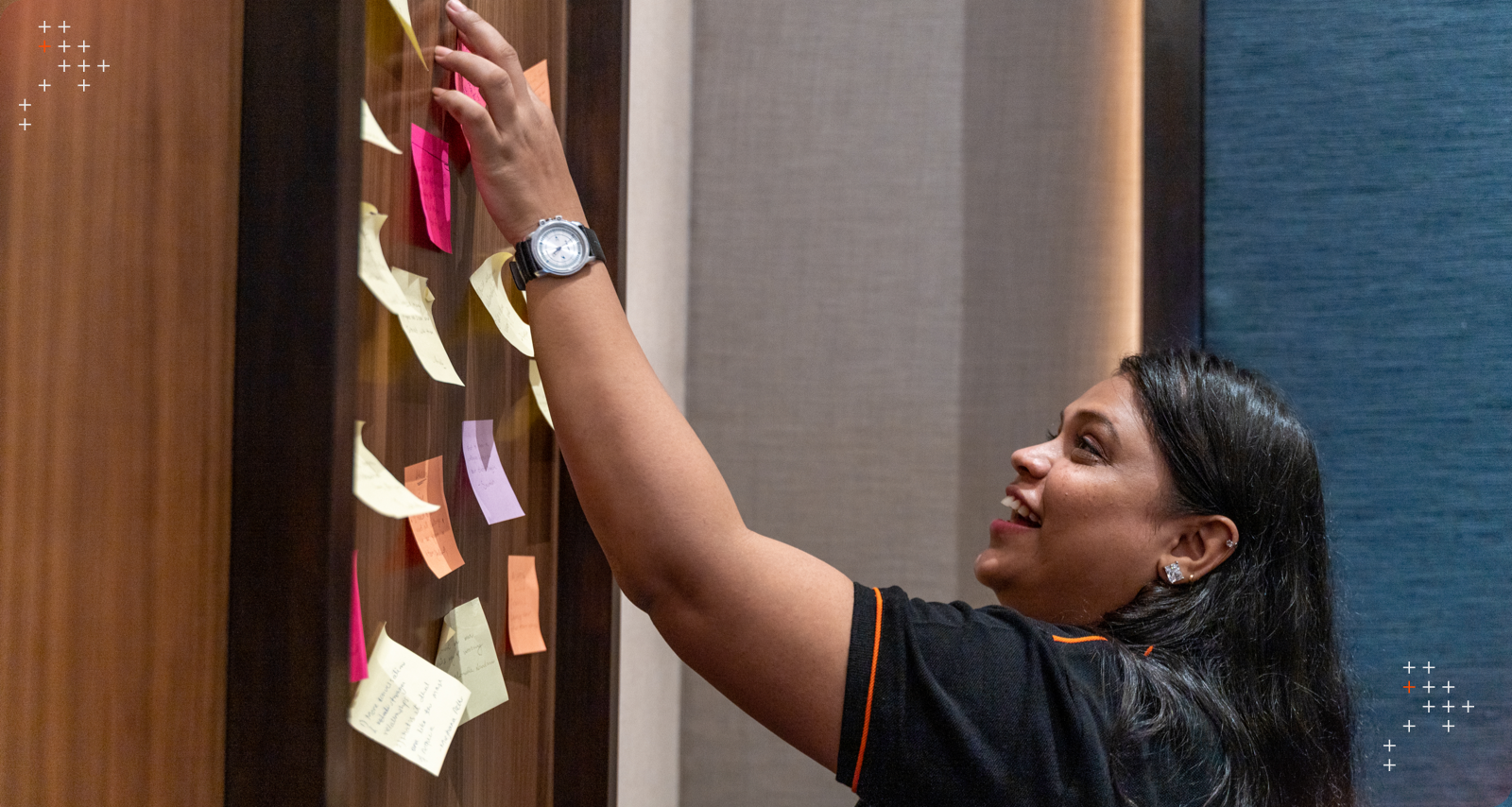Introduction
We know that burnout for Drupalers is severe, and you know it too. Active contributors fixed on giving back to the Open Source world are faced with it all too often.
The issue of burnout has been an ongoing conversation at DrupalCons for several years and finally, the realities of professional burnout are considered dangerous. In fact, a summer 2015 survey shows that 76 out of 100 Drupal contributors have felt burnout at some point. That's staggering!
What’s burnout?
Burnout is what happens when we operate without a proper work-life balance, causing ourselves to lose spirit and enthusiasm for work. A recent Driesnote from DrupalCon Barcelona touched on how important this is. If we feel we're unable to maintain this balance, then it's probably been burnout or we're on our way to it.
The exact definition varies (depending on whom we ask), but burnout is characterized by exhaustion, feelings of ineffectiveness, a severe lack of motivation, and as a result: reduced effectiveness within the workplace.
What does burnout feel like?
Although not entirely synonymous, burnout and depression are similar in many ways. Like depression, burnout is something that causes those who experience it to feel like they have no control over its ways. Often, when burnout manifests itself, individuals experience what can be described as a physical and mental collapse they have trouble managing.
Why are so many Drupalers faced with burnout?
Because Drupalers that contribute more are seen as more valuable, giving till it hurts is possible. The more we give, the more we get, and this can be looked at from many angles, but three overlapping perspectives are Productivity, Praise, and Prestige.
These motivating vantage points are what drive many Drupalers to contribute their time and energy well over what could be considered as an average capacity. The motivations are addictive, and givers lose control of how much they can contribute in a healthy way. These aren’t the only motivators, but each one can fuel both drive and overdrive.
Raw Productivity
Drupalers aren’t contributing just for pats on the back or positive, public reinforcement. Many contributors do what they do because they want to make something great. They believe in giving and aren’t interested in sounding trumpets. Regardless, though, the urge to give more time and energy than can be given is dangerous. The contributor must be cautious of doing this.
Well-Deserved Praise
The Drupal community is great at giving well-deserved praise. We’re proud of our accomplishments and the accomplishments of others. This recognition is a very healthy and active thing.
However, it must be taken as it's meant to be received. Praise should help motivate Drupalers but never drive them to work beyond their limits. Again, this can only be controlled by the contributor.
Professional Prestige
There is such a thing as unspoken influence, but the Drupal community is not bad at vocalizing (or digitizing) prestige. We know which contributors have achieved rock star status. For many Drupalers, the desire for professional prestige is healthy and efficiently rooted in increasing a reputation earned and not given. However, sacrificing our health to attain high esteem can lead to burnout.
While other drivers are more complicated and intertwined than productivity, praise, and prestige, these three can tie directly into burnouts if left unchecked. If we talk to professional Drupalers in the community, they’ll confirm that these are significant motivators that encourage them to go above and beyond.
Alright, so what do we do about this?
As the conversation unfurls within Drupal’s community, we’re getting a clearer picture on how burnouts happen and how to avoid them. In-depth solutions are coming out of these discussions. With the community getting ready for Drupal 8, talk about how we Drupalers need to change the way we do things to survive (and thrive) is becoming heard across the digital space. It’s high time members of the community share strategies and tactics in the fight against burnout. We must accept that work has increased, and find solutions rather than avoid it. Here we’ll find general tactics which can help Drupalers avoid burnout.
Evade Drupaler Burnout With 20 Sidesteps
1. Start Your Day Off Right
If we're taking up a sizeable project to give to the Drupal community along with today's regular work duties, we need to start our day off right. Acquiring some inner peace early on will help put us in the right frame of mind, and keep us there, through the day. For us in a remote work environment, this is no joke. Many of us begin our mornings with prayer, exercise, family time, a healthy meal, or all of the above!
2. Set Realistic Goals
Many contributors have a tendency to over-commit. Too much over too short a period (too often) will get us nowhere in the long run. Getting better at planning our contributions, setting these goals realistically, will improve our wellbeing, the quality of our commits, and the frequency of them.
3. Track Your Daily Time Working, Not Playing
If we’re counting down the minutes before we have to get back to work, we’re building up tension and setting ourselves up for burnout. We all feel like this sometimes. Consider though that if we work hard and track the time we spend working every day, then we shouldn’t have to think about the time we spend off work. Work should be measurable, right? Not play.
4. Earn Your Breaks & Take Them
Taking frequent breaks is a grand idea, but not when we’re failing to meet milestones. By earning our breaks we don’t feel guilty about taking them, we don’t think as much about work during our break, and we feel better coming back to it. Some feel random recesses are a high; that spontaneous breaks are rejuvenating. It might suit us better though to earn each break, so we feel good about each one. And enjoy them for goodness’ sake.
5. Change Locations Now & Again
If we work in an office, then this should apply to our breaks. If we work remotely, then this can be done anywhere. Locations can either be a catalyst or a deterrent to burnout. Switching things up will keep thing interesting.
Some telecommuters will get up and move to a different workspace when a particular cluster of tasks are completed. It may come off as odd, but if we tie this in with our planning process, we move from one place to the next—arriving at home, workfree, at the end of the day.
6. Connect With Colleagues On A Deeper Level
In many ways, the technicalities of our industry may put up a barrier between our work mates and us. When we’re collaborating on delivery, it may seem inappropriate (or may not even come to mind) to reach out with personal gestures.
Share things about yourself and ask others to share things about themselves. We're a community of professionals, and each of us should take our work seriously without taking ourselves too seriously. If we put walls up, expect the claustrophobia and isolation that leads to burnout.
7. Help Others Learn By Assigning Them Work
If we’re always taking this adage to heart “if you want something done right, you better do it yourself,” then we’re setting ourselves up to fail. Open Source technology isn’t about the work of any person. Give others the opportunity to showcase their talent and their ability to scale learning curves by delegating.
Drupalers should be focused on what can be built collectively. If we’re always taking the loner’s approach, we’re stifling the professional growth of our colleagues while robbing ourselves of the balance we need to produce steady contributions.
8. Exercise During The Day, But Not Too
Hard
You don’t need to get up and run 10 miles but let’s be real, some of us aren’t even taking the time to walk outside to check the mail (not e-mail). Exercise needs to become a part of our daily lives; it helps keep the body and mind in a healthy state of being.
Exercise increases endorphins, but it can do something even more powerful for Drupalers in particular. Completing an exercise is a daily feeling of accomplishment. If we’re waking up in the morning to jumpstart our day with a minor achievement, we’re setting up ourselves to achieve great things during the rest of the day.
9. Use Social Media To Talk Contributions
Why not? Engage fellow Drupalers and let people know what we're working on or the problems we're facing. Remember, we don't need to feel isolated; it's not all "on us." Fortunately, we can share and empathize with others currently working on Drupal commits worldwide. This also encourages more giving, more collaboration, and less contributor isolation.
10. Don’t Water The Seeds of Anxiety
Feeding the notions that we don’t know enough, can’t do enough, or aren’t good enough are the worst things we can do. Enough already. Accepting failure and setbacks as they come up is a very different thing from expecting failure—one is healthy, one is not. Crippling ourselves during the day, especially in the morning, with disturbing daymares brought on by anxious tendencies will lead us to a burnout faster than anything else. What this does is magnify our greatest fears—an unacceptable hindrance to our productivity. If this becomes a problem, seek out therapy or talk to your doctor. It’s how real professionals deal with it, and that’s what we are.
11. Drink The Right Amount Of Water
You need to drink the right amount. Drupalers often zone into their work, and forget how important it is to stop and ensure their bodies are getting what’s needed. When we’re looking into an electronic device all day, it’s easy to forget that we’re not one. You might’ve read this, or heard it many times: over 70% of our body is water. You’re not much without it. In fact, go and get a drink of water now if you haven’t already today.
12. Go Easy On Caffeine & Junk Food
The image of a coder typing in the dark, eating chips and drinking green soda in some disheveled work den is one we should all smile at. Yes, it’s a noble and proud history of late-night hackathons and hilarious stereotypes. But here’s the thing, if you haven’t noticed, what we do versus what the world thinks we do are often different (and for good reason too). Your face shouldn't be in that image. Your work takes a sharp, clear mind unhindered by jittery hands, heart palpitations, or stomach aches. Caffeine, junk food, and other drugs will lead us to crash and burn eventually.
13. Know Your Company’s Wellness Benefits
This point goes beyond health insurance. You must become familiar with what your employer is offering you. While useful project management tools and other timely apps help professionals handle their workloads, these tools don’t address root causes of burnout. Companies need to invest in their employees’ wellness in a beneficial way. At Axelerant, we offer several benefits which foster health and healthy work-life balances.
14. Consider Going Away From The Digital Space
When we go on vacation, get away from the internet. For us techies, this may seem like a nightmare. But it might be imperative for us to remove ourselves from the digital space to avoid the temptation of work.
If we’re one of those people who can’t help but log into work emails or track projects on vacation, then it might be time for us to take drastic measures. Cut ourselves off from all things digital (or analog) and enjoy life outside. Keep in mind that having a work-life balance means that in one weighing pan we have our working lives, and on the other we have our personal life. There’s a divide for many reasons and avoiding burnout is one of them.
15. Speak To Your Mentor
In the Drupal community—certainly within the greater Open Source community as a whole—there are lots of mentors. In an OSS world built by contributors, there's plenty of advice out there on how to (and how not to) contribute. One of the hallmarks of our community is enabling members with mentors. These are Drupalers who help other Drupalers solve contribution issues, guiding them to success, giving them tips. Reaching out to our mentor with questions about burnout is a good idea—value their perspectives.
16. Organize, Organize, Organize
Not just people but entire organizations can fight exhaustion through better organization. Encouraging self-organization, active processes, and promoting well-ordered days of work can make a huge difference. Blocking off time, scheduling, setting parameters, if we hold ourselves to these things, then this stuff can help. Committing to a contribution without being organized is never good.
17. Think About Coaching
Recently, we hired a Life Coach for our team, and we’re experiencing great results and personal breakthroughs. Life coaching has proven to be a powerful way to sidestep burnout by facilitating wellness in our staff. It’s a holistic benefit, the kind businesses serious about fighting burnout need to explore for their teams.
18. Talk About Burnout
One of the worst things a person can do is keep burnout to themselves. It's one of the reasons things went awry in the Drupal community. Contributors just weren't talking about burnout. Solving any problem starts with talking about it, and admitting there is one. If we don't start talking about burnout—what it feels like, how we think we can stop it—then things are going to stay the same.
19. Take Time To Rest
If we work from home like many of us do, this can get tricky. You need sleep. It isn't just good for us; we're not ourselves without it. The less rest we get, the more mistakes we'll make, the sillier we'll sound, the bigger even the smallest of tasks becomes. A lack of rest makes every project feel like a drag, and that's because we're dragging. Five to eight hours of sleep a night is the way to go.
20. End Your Day Right
Imagine this: there's a big white polar bear, and it's walking through the snow. Now stop thinking of the bear. Not so easy for some. If we find ourselves unable to focus on those trees or the gorgeous mountains in the background, we might be someone who has trouble "turning work off" when we're finished for the day. And if we find ourselves haunted by tasks or to-dos when we're supposed to be spending time with family or friends, we can bet on having trouble sleeping through the night—thinking of work for hours.
This aspect isn't about detoxing. Hard work isn't toxic. It's about track switching. Consider setting aside 5 to 10 minutes at the end of the work day to recall what still needs to be done. Bring these items together and form a list or incorporate them into our calendar or project management system for.
You have the power to sidestep burnout.
For many, talking about this is a new thing. Let’s keep in mind the basics of burnout, why so many Drupalers are faced with it, and the general tactics we can use or suggest to address it.
Watch these awesome sessions and learn more about burnout:
- Avoiding & Surviving Contribution Burnout By Lauri Eskola & Michael Schmid
- Community Keynotes By David Rozas & Mike Bell
This article was originally published in September 2015. It has been since been updated.

Nathan Roach, Director of Marketing
Germany-based consumer of old world wine and the written word. Offline you can find him spending time with his wife and daughter at festivities in the Rhineland.

 We respect your privacy. Your information is safe.
We respect your privacy. Your information is safe.



Leave us a comment